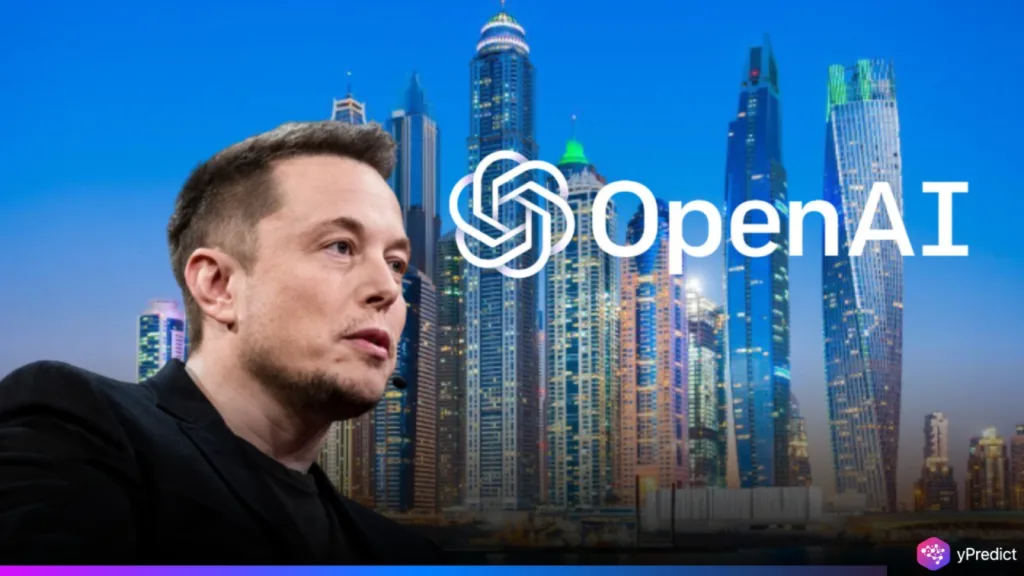
In a striking development within the tech and AI sector, the OpenAI UAE AI project encountered strong resistance from Elon Musk, who reportedly tried to derail the multibillion-dollar collaboration between OpenAI and Emirati firm G42.
The “Stargate” project, led by OpenAI and Emirati tech firm G42, plans to build a major AI data center in Abu Dhabi. Musk attempted to involve his company, xAI, in the agreement, but officials rejected the proposal, highlighting growing industry competition. This clash exposes deep fractures in the global race for AI leadership, where politics, corporate rivalry, and national interests increasingly collide.
Musk Pressured UAE Officials to Involve xAI in OpenAI UAE AI Project
According to The Wall Street Journal, Musk recently attempted to intervene in a high-profile artificial intelligence infrastructure deal between OpenAI and the United Arab Emirates, hoping to win a stake for his AI company, xAI. Sources say Musk pressed G42 officials, warning that President Donald Trump might not endorse the partnership otherwise.
Musk launched his lobbying campaign after learning that OpenAI CEO Sam Altman would join Trump on a Gulf region tour. Altman, Musk’s former partner and current rival, played a key role in the UAE agreement, prompting Musk to take action. In response, Musk decided to join Trump’s Middle East trip and appeared with him during a stop in Saudi Arabia. He aimed to influence the agreement’s final terms by leveraging his presence and political ties during the president’s regional visit.
Despite Musk’s efforts, G42 and OpenAI moved ahead, finalizing a deal that includes collaboration with other technology leaders such as Oracle, Nvidia, Cisco, and SoftBank. Under the agreement, G42 will finance the construction of a data center cluster expected to be among the largest globally.
The facility, powered by advanced Nvidia chips and operated by major U.S. and Japanese firms, will be matched by a similarly scaled investment in American-based AI infrastructure. The goal is to create a balanced, mutually beneficial transnational AI network.
Despite Sheikh Tahnoon’s past investments in Musk’s xAI, OpenAI was selected to oversee the Stargate project, reigniting tensions between Musk and Altman. Although Musk’s xAI was left out of the UAE’s flagship AI deal, it remains part of the broader U.S.-UAE tech cooperation. xAI is among a select group of U.S. firms conditionally approved to acquire a substantial share of the 500,000 AI chips allocated each year.
A History of Tension Between Musk and OpenAI
This isn’t Musk’s first conflict with OpenAI; he has repeatedly clashed with the company over its direction and leadership. Musk and Altman co-founded OpenAI in 2015 but split in 2018 due to disagreements about the company’s future goals. Since then, their relationship has worsened, with Musk accusing Altman of abandoning OpenAI’s original nonprofit and open-source mission. He has publicly criticized Altman and even filed a lawsuit against both him and the company over their current practices.
The Stargate OpenAI UAE AI project marks the latest chapter in Musk’s ongoing rivalry with Altman, whose leadership has positioned OpenAI at the forefront of global AI development. In contrast, Musk’s AI venture, xAI, launched in 2023, continues to build large language models and form strategic partnerships but remains in a catch-up phase.
Musk’s frustration over the Abu Dhabi project echoed his earlier reaction in January, when Trump unveiled the initial $500 billion Stargate AI initiative in the U.S., involving OpenAI, Oracle, Nvidia, and SoftBank. The deal caught Musk off guard. He reportedly voiced his discontent at the White House and publicly questioned its financial viability on social media.
Conclusion
Elon Musk’s failed attempt to derail OpenAI’s UAE AI project highlights the high stakes involved in the global AI ecosystem. As the UAE moves forward with Stargate UAE, backed by prominent IT businesses, the region’s AI goals gain traction. Meanwhile, rivalry among AI innovators heats up, with geopolitical considerations increasingly shaping technology breakthroughs.
For industry observers and investors, this drama underscores the intricate interplay of technology, politics, and corporate strategy that will shape the future of AI around the world.






